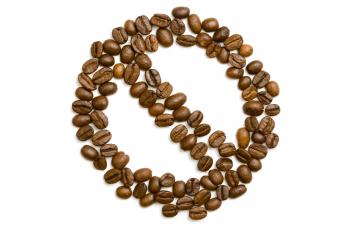Effects of Caffeine Withdrawal

Caffeine withdrawal is the common result when you try to cut back your consumption of coffee and other caffeinated beverages. Although only temporary, these symptoms can range from mild to moderate to severe; it all depends on how much caffeine your body is used to receiving. However, don't let that discourage you from cutting back. Just learn what to expect, and know that the worst of it will be over in a few days.
Caffeine Headache

The dreaded caffeine headache is the most widely reported withdrawal symptom associated with giving up caffeine. For some people, it's a dull throb while others report near-migraine level pain. Pain relievers can take the edge off the ache, but read the labels because some of these medications also contain small amounts of caffeine.
Feeling Tired

Feeling tired is probably the second most reported symptom of withdrawal from caffeine. After all, caffeine provides an artificial, albeit temporary, boost in your energy levels. If you've become dependent on a cup of coffee or soda for an energy boost at certain times during the day, it's only natural to feel exhausted when you don't get it. That feeling will fade as the caffeine clears your system.
Feeling Depressed

Depression is also sometimes reported with withdrawal. If you're already experiencing physical symptoms, it's not unusual to also feel a sense of loss. After all, you've become accustomed to the pleasure of consuming caffeinated beverages and foods, so it's natural to experience some sense of loss when you're no longer indulging. This feeling will also pass.
Lack of Concentration

Caffeine can boost mental clarity, and when you're suddenly without it you may find it difficult to concentrate on what's in front of you. You can expect to feel a little "fuzzy" for a day or two as your brain learns to function completely on its own again.
Feeling Irritable

If you can't have your regular coffee break and you're not feeling well because of other withdrawal symptoms, it's not unusual to feel rather grumpy as part of the bargain. There's always a measure of anxiety that goes along with trying to kick any habit, and people express it different ways.
Sign up for our newsletter featuring all the latest stories and products we love.
Feels Like the Flu

Any combination of the previously mentioned symptoms are enough to make you feel like you have the flu when you're going through withdrawal, but some people also report feeling nauseous. The symptoms tend to peak between days three and four after stopping caffeine consumption, but all the effects of withdrawal should be completely gone in about nine days.
If you're wondering whether or not you're really addicted, just take the Caffeine Addiction Quiz to determine just how important caffeine has become in your life.







